04 Dec2020
By Audrey Hill
The University of Maryland, Prince George’s Community College and Prince George’s County Public Schools announced a dual enrollment program to increase the teaching workforce in the state.
The Middle College Program enables high schoolers from county schools to earn an associate of arts degree in teaching while completing their high school requirements. Dual enrollment students can then transfer seamlessly into the UMD College of Education’s undergraduate teaching program; the program also aligns with Bowie State University and Howard University’s academic requirements.
“The collaboration is a reflection of our commitment to developing innovative new pathways to prepare an excellent and diverse teacher workforce for Prince George’s County Public Schools and for the state of Maryland,” said Jennifer King Rice, dean of the College of Education. “This model of ‘growing your own’ teachers will increase diversity in the education field, develop teachers from the local community and address critical teaching shortages.”
01 Dec2020
By Katrina Norfleet

In a recent interview with AACTE, Gaëtane Jean-Marie, dean and professor of educational leadership at the College of Education, Rowan University, discusses the importance of preparing teacher candidates to understand the cultural background of students in moving toward a more humanistic approach to see the learner as an individual.
Why is it important to prepare teacher candidates in culturally responsive classroom management?
It is to really realize the belief that all children can learn. A while back when I was teaching as a faculty member, I remember DuFour’s comment that stayed and resonates with me; it is that, “if we truly believe that all children can learn, what then do we do when they can’t, when they are not learning?” It makes me ask: What is our responsibility to help bridge the cultural gap between teachers and students? As we continue to help diversify the teaching profession, it is still predominantly white teachers who are the educators, so how do we prepare them? What’s the responsibility of ensuring that our teacher candidates can really meet the needs of all learners? Given the demographic shift, where more of our Black and Brown children are in schools and will be taught by teachers who are not of the same race. If we are recognizing that it starts with the belief that all children can learn, then our belief must also align with our practices as we continue to work hard to diversify the profession. We espouse the belief that all children can learn; now let’s realize that dream.
01 Dec2020
By Jerrica Thurman

On November 19, AACTE held its inaugural virtual Town Hall featuring an interactive discussion on Critical Race Theory (CRT) in education with six leading educators: Marvin Lynn, Ph.D., dean and professor, College of Education, Portland State University; Kimberly White-Smith, Ed.D., dean, La Fetra College of Education and Professor, University of La Verne; Lisa Norton, Ed.D., dean, College of Education and Health Sciences, Touro University, California; Jesse Perez Mendez, Ph.D., dean, College of Education, Texas Tech University; John Henning, Ph.D., dean, School of Education, Monmouth University; and Jacob Easley II, Ph.D., dean, Graduate School of Education, Touro College. During the session, the panelists addressed the integral role educator preparation programs play in advancing scholarly work on CRT as well as questions posed by the audience.
As the moderator, Mendez guided the conversation beginning with an explanation of CRT. “Please define Critical Race Theory and explain its tenets and brief history in education,” he said. Lynn responded, “Critical Race Theory is defined as a historical analysis and critique of racism and white supremacy. It’s an analysis of racism and white supremacy in the law and society that really uses relevant examples of case law, public policy, popular culture and critical historical events that are designed to draw attention to the way in which the law is racially constituted.” Lynn said, “And then we can think about critical race theory as an interdisciplinary critical theoretical method that’s taken up again chiefly by legal scholars. It draws on fields of sociology, anthropology, ethnic studies, and women’s studies to put forward a critique, a broad, systemic critique of race and racism as a key axis of power in the United States and around the world.”
30 Nov2020
By Amber Benedict, Linda Blanton, Mary T. Brownell and Jane E. West
 AACTE is proud to partner with the CEEDAR (Collaboration for Effective Educator Development, Accountability, and Reform) Center to bring you a webinar focused on a special issue brief, Leading and Engaging Faculty in Teacher Preparation Reform: The Role of Deans, on December 16, 12:00 – 1:00 p.m. ET.
AACTE is proud to partner with the CEEDAR (Collaboration for Effective Educator Development, Accountability, and Reform) Center to bring you a webinar focused on a special issue brief, Leading and Engaging Faculty in Teacher Preparation Reform: The Role of Deans, on December 16, 12:00 – 1:00 p.m. ET.
The issue brief summarizes the experiences in leadership of six current and former deans who have been identified as engaging in successful collaborative reform efforts within their colleges. AACTE and CEEDAR look to their experiences to support leaders, like you, in understanding the actions they took and the strategies they employed that may be useful to other leaders of educator preparation programs (EPPs) who are committed to restructuring curricula and programs in their own settings.
19 Nov2020
By Adriana Labarta
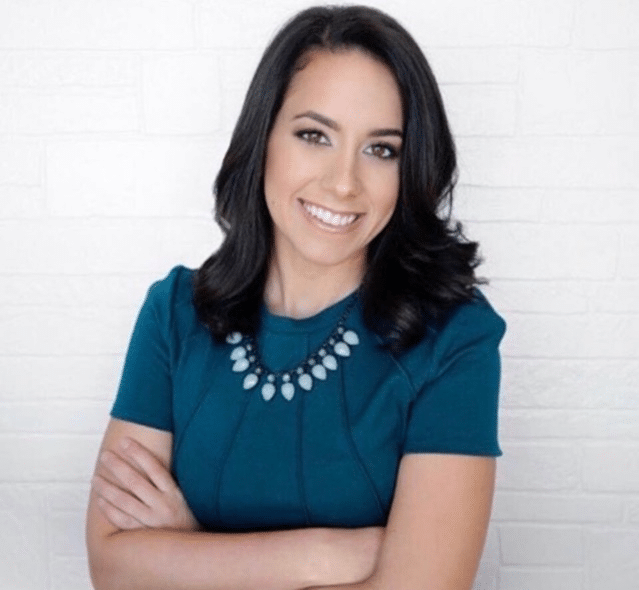 Amid the COVID-19 pandemic, institutions of higher education have experienced various challenges, including transitions to online learning and adaptations to the delivery of campus services. Students, faculty, and staff alike have navigated feelings of anxiety and stress amid these uncertain times. Further, students that identify as Black, Indigenous, and People of Color (BIPOC) are navigating two pandemics: COVID-19 and systemic racism. This reality presents an important question: How are university systems working to address racial injustice and support BIPOC students?
Amid the COVID-19 pandemic, institutions of higher education have experienced various challenges, including transitions to online learning and adaptations to the delivery of campus services. Students, faculty, and staff alike have navigated feelings of anxiety and stress amid these uncertain times. Further, students that identify as Black, Indigenous, and People of Color (BIPOC) are navigating two pandemics: COVID-19 and systemic racism. This reality presents an important question: How are university systems working to address racial injustice and support BIPOC students?
On Monday November 2, 2020, the College of Education (COE) Student Achievement Council (SAC) at Florida Atlantic University (FAU) collaborated with AACTE’s Holmes Scholars Program and the COE Diversity Committee to host a student outreach event with the purpose of addressing the aforementioned question. The three-part virtual presentation consisted of a welcome from COE Dean Stephen Silverman, a panel discussion with FAU’s Holmes Scholars, and an open discussion with all attendees of the event.
17 Nov2020
By Katrina Norfleet

Facilitated by a panel of education deans, this open forum will examine and discuss the integral role educator preparation programs play in advancing scholarly work on Critical Race Theory, as well as ways to resist attacks on institutions’ efforts centered around this work. You are invited to join your colleagues and share challenges and success stories about your efforts to address race, equity, and social justice during these challenging times including the following topics:
- The challenges EPPs face in advancing diversity, equity, and inclusion initiatives because of the federal ruling and COVID-19
- How EPPs can resist the recent attacks on institutions’ work and impact centered on Critical Race Theory
- Success stories of EPPs’ work in Critical Race Theory since the federal ruling and COVID-19
17 Nov2020
By Deen Lango
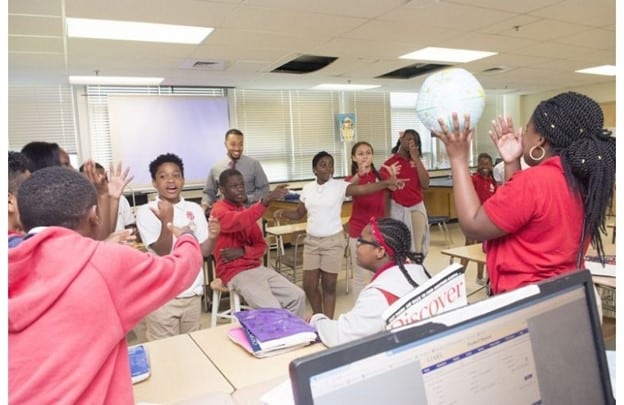
This article originally appeared in the USBE Information Technology magazine and is reprinted with permission.
Although minorities make up more than half of the student population in public schools, people of color make up about 20 percent of teachers. More than 70 percent of the total number of teachers are female. With support from the Education Writers Association, Chandra Thomas Whitfield took a close look at the shortage of Black male teachers in 2019. Nationwide, Whitfield found that only 2 percent of teachers are Black men.
Eleven months after Whitfield’s report, Alabama A&M University launched its Males for Alabama Education initiative to recruit Black male students who have an interest in teaching.
In October 2020, the Males for Alabama Education (M.AL.E.) Initiative announced that the scholarship program is accepting applications again.
Coordinated by the College of Education, Humanities and Behavioral Sciences and its Department of Teacher Education and Leadership, the M.AL.E. Initiative aims to:
16 Nov2020
By Jacqueline E. King, Ph.D.
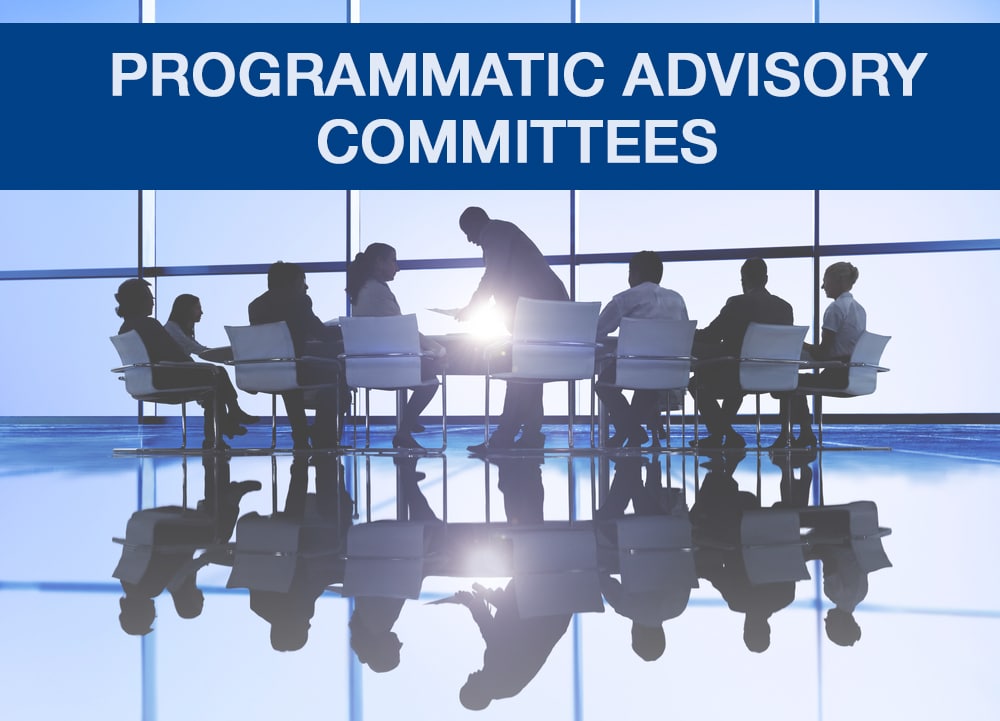
At its September meeting, the AACTE Board of Directors appointed new members to the programmatic advisory committees, including two new committees on Educator Diversity and the Holmes Program. Congratulations to these AACTE members, who will assume these positions on March 1, 2021, and a special thank you to everyone who submitted a nomination for these important volunteer leadership roles.
02 Nov2020
By JTE Insider
This podcast interview features insights from the article “Education Policy and Black Teachers: Perspectives on Race, Policy, and Teacher Diversity” by Terrenda White, Brian Woodward, DaVonna Graham, H. Richard Milner, and Tyrone C. Howard. The article is published in the September/October 2020 of the Journal of Teacher Education. AACTE members have free access to the articles in the JTE online archives—log in with your AACTE profile.
02 Nov2020
By Katrina Norfleet
The University of Michigan’s TeachingWorks is offering a series of free virtual mini-courses for English language arts teacher educators as part of its goal is to create a system for teacher preparation and establish support that will produce skillful beginning teachers who disrupt inequity.
The mini-courses will help build an understanding of critical content in ELA and develop practice-based approaches for teaching that content to novice teachers. This series will support ELA teacher educators to develop K-12 instruction and teacher education that fills immediate needs for children and contributes to building an education that dismantles injustice instead of perpetuating it.
The next course available for registration takes place on December 4, 2020:
02 Nov2020
By Matthew Wales

Themed Leadership During Difficult Times, AACTE’s first session of the 2020 Leadership Academy Series, held on October 14, explored how three institutions have risen to the challenge and taken strides to make lasting policy and programmatic changes related to diversity, equity, and inclusion. To continue the discussion, AACTE has provided panelist Lisa Norton, dean of the College of Education & Health Sciences at Touro University, California and one of the featured panelists, with some additional questions from session attendees. Here is what she had to say:
The Graduate School of Education at Touro University, California recently held a series of informative and courageous conversations regarding what it means for education to live diversity in 2020 and beyond. Can you share some of the insights related to accessibility for all PK-12 students in a remote learning environment?
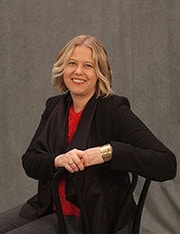 Our current Academic College Instructional Designer and Graduate School of Education faculty member, Dr. Michael Barbour, is internationally known for work on PK-12 remote learning and accessibility. We are lucky to have him to help both our own campus and the local school districts with information related to creating an inclusive online environment. We conducted a webinar series entitled Diversity Now, in which we addressed this and many other topics. We are now in discussions to help the school district with additional support for families. This support includes tutoring and mentoring children in two of the schools and possibly partnering on a large-scale grant effort through the state.
Our current Academic College Instructional Designer and Graduate School of Education faculty member, Dr. Michael Barbour, is internationally known for work on PK-12 remote learning and accessibility. We are lucky to have him to help both our own campus and the local school districts with information related to creating an inclusive online environment. We conducted a webinar series entitled Diversity Now, in which we addressed this and many other topics. We are now in discussions to help the school district with additional support for families. This support includes tutoring and mentoring children in two of the schools and possibly partnering on a large-scale grant effort through the state.
02 Nov2020
By AACTE
On behalf of the Board of Directors of the American Association of Colleges for Teacher Education (AACTE), President and CEO Lynn M. Gangone issued the following statement today urging educators to resist the Trump administration’s attack on critical race theory and other anti-racism work in education:
“In its June 4 statement, the AACTE Board of Directors called educators to take courageous action on race matters in America to address not only recent racial injustices across the nation but also structural racism that has deep, historic roots in our society. Critical race theory represents the scholarly work of educators who provide research evidence and expertise on how the legacy of slavery and inequality in America has unequivocally influenced our American way of life, including our system of education, and on effective ways to dismantle structural racism in American society. It has long been the focus of scholars across many disciplines, which has contributed to the great strides institutions have made in advancing human and civil rights for all Americans.
Banning federal funds to be used for professional development that addresses topics like white privilege, implicit bias, and structural racism, which are examined within critical race theory, is a denial of the historic realities of our country, and is an assault on the strategic gains institutions of higher education and educator preparation programs have made to enlighten students and affect change that promotes racial and social justice for all. Educators must resist any setbacks to the many years of research and activism scholars have made to progress our nation into a society that values the lives of all human beings.
AACTE and its member institutions are committed to revolutionizing education by upholding high standards in the preparation of future teachers through inclusive curriculum and evidence-based instructional strategies, modeling, and advocacy that dismantle racial oppression. AACTE members are actively working to diversify the teaching profession, address the teacher shortage, redesign curricula that reflects the needs of 21st century learners, advocate for policies that fund student teachers of color, and build social justice partnerships for strengthening the education community—all in a concerted effort to advance diversity, equity, and inclusion in PK-20 education. Critical race theory is at the foundation of this vital work. AACTE calls on educators and the educator preparation community to stay the course and to actively support the work of critical race theorists and other anti-racism efforts for building a more racially just society.
###
AACTE: The Leading Voice on Educator Preparation
The American Association of Colleges for Teacher Education is a national alliance of educator preparation programs and partners dedicated to high-quality, evidence-based preparation that assures educators are profession-ready as they enter the classroom. The 700 member institutions include public and private colleges and universities in every state, the District of Columbia, the Virgin Islands and Guam. Through advocacy and capacity building, AACTE promotes innovation and effective practices that strengthen educator preparation. Learn more at aacte.org.
23 Oct2020
By Matthew Wales
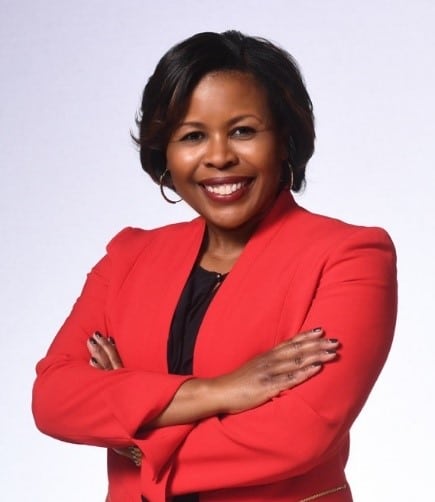 Every year, AACTE typically holds its Leadership Academy as an in-depth, face-to-face, hands-on training for those educators seeking to begin or enhance their roles in academic leadership. Given the current Covid-19 pandemic, AACTE wanted to bring a portion of that experience to its membership, and thus the 2020 Leadership Academy Series was created.
Every year, AACTE typically holds its Leadership Academy as an in-depth, face-to-face, hands-on training for those educators seeking to begin or enhance their roles in academic leadership. Given the current Covid-19 pandemic, AACTE wanted to bring a portion of that experience to its membership, and thus the 2020 Leadership Academy Series was created.
With the theme of Leadership During Difficult Times, the Leadership Academy Series explores topics that are more relevant than ever to our members. The first session of the series, held on October 14, explored how three institutions have risen to the challenge and taken strides to make lasting policy and programmatic changes related to diversity, equity, and inclusion.
Monika Williams Shealey, senior vice president for diversity, equity and inclusion at Rowan University, was one of three distinguished panelists. She recently took time to answer some additional questions from attendees. Here is what she had to say:
22 Oct2020
By Andre ChenFeng
“We are more than test scores.” That was the refrain I heard from my social sciences colleagues in the teachers’ lounge protesting our school’s focus on standardized tests. The middle school was located in a poverty-impacted community with over 95% of students of color. In 2009, I was finishing my fifth-year teaching and recall asking myself, “Why are the standardized tests such an evil thing? Don’t we need assessments to measure what the students are learning?” (ChenFeng, 2009).
One of the signature education policies in my early career was the No Child Left Behind (NCLB) Act of 2002. Teachers have different opinions of NCLB, but most educators and policy makers would agree that NCLB brought upon a culture of “over-testing and one size fits all mandates” (Duncan, 2015). During the 12 years I taught middle school math in Los Angeles, not once did I examine the intersection of white supremacy and education policy in my own classroom instruction. Overwhelmed by the high-stakes testing environment, and with a roster of 130 students, I was not aware of the impact of federal education policy on my teaching beliefs and instruction. In retrospect, I upheld color-evasive ideology and believed in a pedagogy that promoted the myth of meritocracy (Bonilla-Silva, 2017 as cited in Diem & Welton, 2020). In other words, I did not consider how race and racism shows up in the classroom or the ways I was complicit in perpetuating the false notion of pulling ourselves up by the bootstraps.
20 Oct2020
By Robin Chenoweth
The following article is an excerpt from Inspire Magazine and is reprinted with permission.
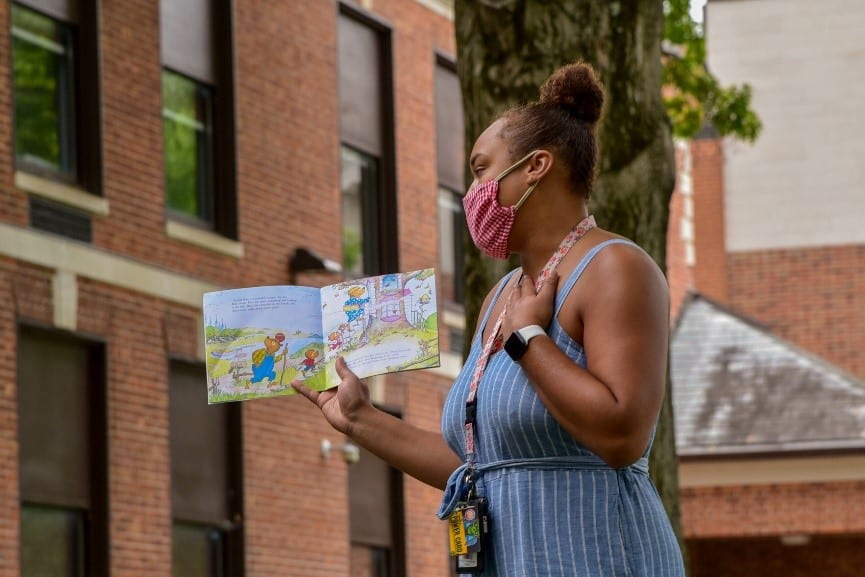 After schools shut down in March due to COVID-19, teacher Sarah Thornburg and her team tackled remote teaching with gusto.
After schools shut down in March due to COVID-19, teacher Sarah Thornburg and her team tackled remote teaching with gusto.
“We were like, ‘Let’s go.’ We found out, not only could we not teach the way that we wanted, but we shouldn’t,” the Columbus, Ohio, teacher said. “Everything had to slow down and focus not on content but on (students’) mental well-being.”
Some high-schoolers doubled work hours to pay bills. Some feared they would expose grandparents to the virus. Families lost businesses.
“That’s a burden that’s incredible for anybody to have, much less for a 15-year-old to deal with,” Thornburg said. “You can’t teach a child who’s completely freaking out about, ‘Are we going to lose our home?’ That was eye-opening.”









 AACTE is proud to partner with the CEEDAR (Collaboration for Effective Educator Development, Accountability, and Reform) Center to bring you a
AACTE is proud to partner with the CEEDAR (Collaboration for Effective Educator Development, Accountability, and Reform) Center to bring you a  Amid the COVID-19 pandemic, institutions of higher education have experienced various challenges, including transitions to online learning and adaptations to the delivery of campus services. Students, faculty, and staff alike have navigated feelings of anxiety and stress amid these uncertain times. Further, students that identify as Black, Indigenous, and People of Color (BIPOC) are navigating two pandemics: COVID-19 and systemic racism. This reality presents an important question: How are university systems working to address racial injustice and support BIPOC students?
Amid the COVID-19 pandemic, institutions of higher education have experienced various challenges, including transitions to online learning and adaptations to the delivery of campus services. Students, faculty, and staff alike have navigated feelings of anxiety and stress amid these uncertain times. Further, students that identify as Black, Indigenous, and People of Color (BIPOC) are navigating two pandemics: COVID-19 and systemic racism. This reality presents an important question: How are university systems working to address racial injustice and support BIPOC students?


 Our current Academic College Instructional Designer and Graduate School of Education faculty member, Dr. Michael Barbour, is internationally known for work on PK-12 remote learning and accessibility. We are lucky to have him to help both our own campus and the local school districts with information related to creating an inclusive online environment. We conducted a
Our current Academic College Instructional Designer and Graduate School of Education faculty member, Dr. Michael Barbour, is internationally known for work on PK-12 remote learning and accessibility. We are lucky to have him to help both our own campus and the local school districts with information related to creating an inclusive online environment. We conducted a  Every year, AACTE typically holds its Leadership Academy as an in-depth, face-to-face, hands-on training for those educators seeking to begin or enhance their roles in academic leadership. Given the current Covid-19 pandemic, AACTE wanted to bring a portion of that experience to its membership, and thus the
Every year, AACTE typically holds its Leadership Academy as an in-depth, face-to-face, hands-on training for those educators seeking to begin or enhance their roles in academic leadership. Given the current Covid-19 pandemic, AACTE wanted to bring a portion of that experience to its membership, and thus the  After schools shut down in March due to COVID-19, teacher Sarah Thornburg and her team tackled remote teaching with gusto.
After schools shut down in March due to COVID-19, teacher Sarah Thornburg and her team tackled remote teaching with gusto.